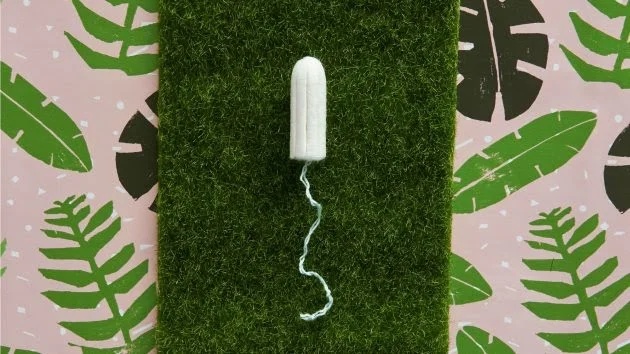By Niamh
In 2020, you might be forgiven for thinking that period poverty is scarce in the UK.
But you’d also be mistaken – as one in 7 women struggle to afford period products. Lockdown has posed even more difficulty for women trying to access menstrual products, with Wateraid estimating that 54% of British women aged 18 to 55 have experienced increased challenges in managing their periods.
It’s clear that action needs to be taken to provide better access to period products. But with menstrual products (which are 90% plastic) contributing to 200,000 tonnes of landfill waste in the UK each year, this is a problem that can only be tackled sustainably.
Enter Ella Daish. Since launching her campaign to #EndPeriodPlastic in February 2018, Ella has been calling on governments and local authorities in the UK to fight period poverty and the plastic crisis by spending funding on eco-friendly period products.

Image courtesy of Ella Daish
At Marie Claire, we’re actively supporting Ella’s powerful #EndPeriodPlastic campaign, with the environmentalist telling us of her inspiration behind the movement back in July:
‘Once on my period, I noticed the amount of plastic waste I was generating during just one menstrual cycle. I went to my local supermarket to buy an eco-friendly alternative, and there were none. I ordered online, but it stayed with me that if small companies could make them then so could big brands stocked in supermarkets. That’s why I launched the petition for change.’
And her work is paying off. In a landmark decision, the Welsh government has stipulated that 50% of all period poverty funding must be spent on eco-friendly products.
The life and potentially planet-changing decision was made at the Welsh Governments period dignity roundtable, which was attended by Ella and headed up by Jane Hunt MS.
Ella (centre) at the government’s period dignity roundtable meeting
As well as this, local authorities in Wales (the Bridgend, Cardiff and Monmouthshire councils respectively) have committed to spending all their period poverty funding, which makes menstrual products freely available at schools, on eco-friendly products.
The funding is set to provide girls in schools with a mixture of eco-friendly tampons, pads and reusables like menstrual cups, cloth pads and period plants.
Ella (centre) at the government’s period dignity roundtable meeting
As well as this, local authorities in Wales (the Bridgend, Cardiff and Monmouthshire councils respectively) have committed to spending all their period poverty funding, which makes menstrual products freely available at schools, on eco-friendly products.
The funding is set to provide girls in schools with a mixture of eco-friendly tampons, pads and reusables like menstrual cups, cloth pads and period plants.
The move follows the same action taken by Caerphilly Council, who became the first local authority in the UK to take this step back in September 2019.
Speaking of the government’s commitment to an eco-friendly solution, Ella said: ‘I’m super proud of these incredible decisions that have been made and to have played a part in making it happen. This landmark first to spend 50% of funding on eco-products is a massive step for a government to take, it is progressive and will have far-reaching positive impacts.’
Getty Images





